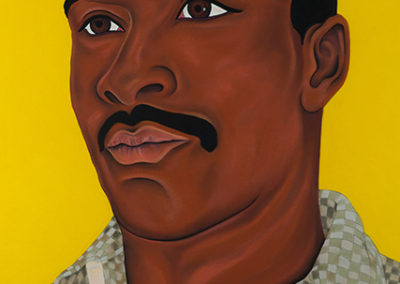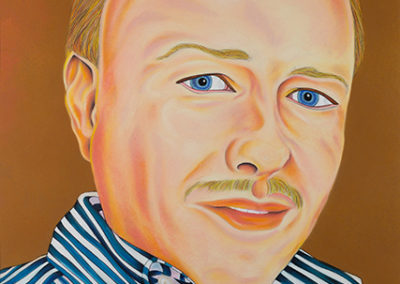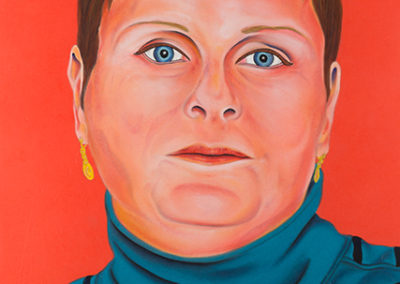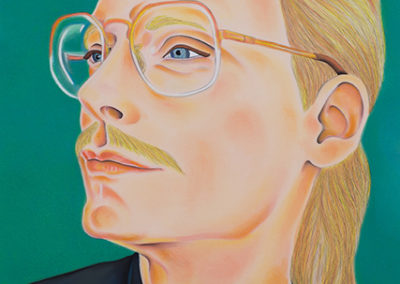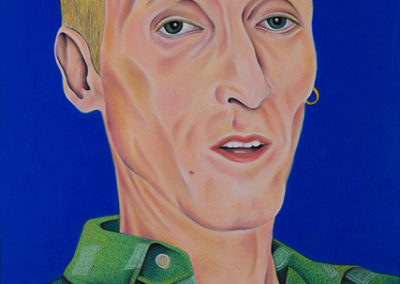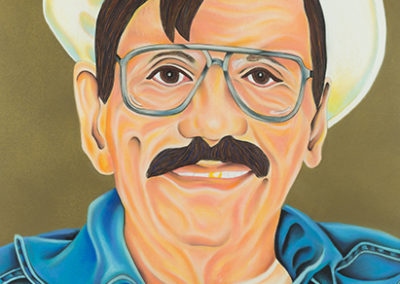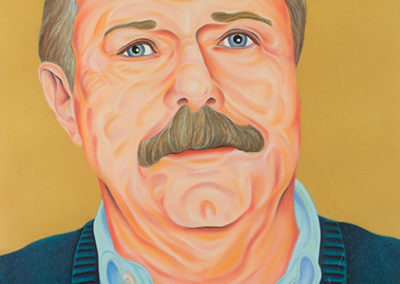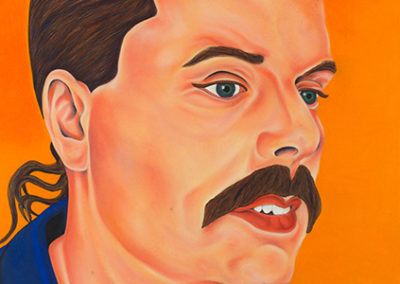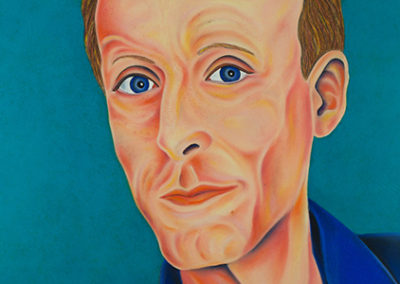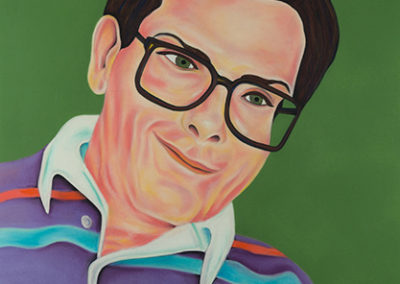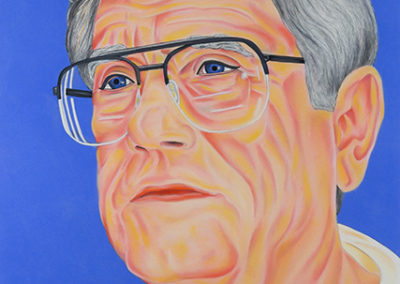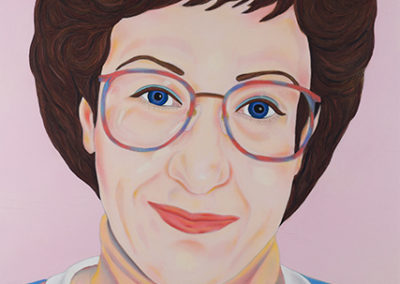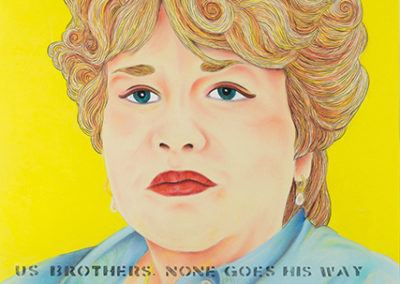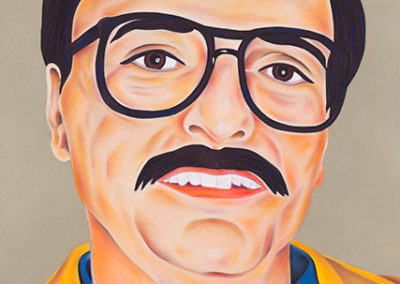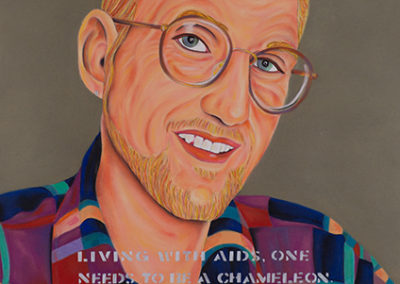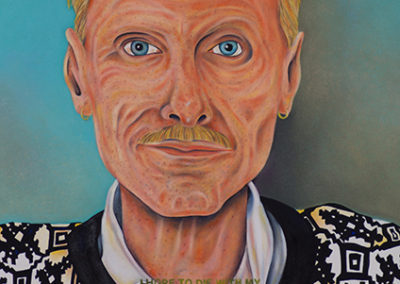Renowned Iowa artist, Tilly Woodward shared with us the story and inspiration behind the pastel portraits that lined the hallway of our clinic. This is the history of The AIDS Portrait Project from the artist’s perspective
I thought about doing an AIDS Portrait Project for some time, and I wanted to justify why it was important. I thought about the people living with HIV/AIDS, and I thought about my children, who were young at the time. I decided to do the project because I wanted to teach my children about caring and compassion without prejudice. I also wanted them to know the facts about HIV/AIDS, which as a disease, does not discriminate against anyone.
In 1993 a Kansas City public health official suggested that I do a series of work about people living with HIV/AIDS. She was looking at my project, “Portraits of Dubuque,” which I had initiated in response to cross burning in that city. She talked to me about the fight of the people living with the disease, how they suffered from a great deal of isolation and prejudice. We both believed that communicating their experience through art could be both important and powerful.
With the help of Kirk Bragg and the AIDS Project of Central Iowa, I began to meet with Iowans who were living with HIV/AIDS: sons, daughters, mothers, fathers, grandparents. I asked them to make some statement about themselves and their lives, to give some words, describe a memory, something about which they felt strongly. I photographed them, and used the photographs to make a series of pencil drawings of each person. The pencil drawings were used to develop a final piece in color, bearing the words (if any) given by the project participants. Working cooperatively with the project participants and their survivors has been an essential part of the project.
I hope the portraits will allow people living with HIV/AIDS an opportunity to communicate something of their experience to the larger public, and thereby help address the prejudice that so often confronts them. I also want the portraits to be used as an educational tool through which conversations can be initiated.
The AIDS Portrait Project was funded in part by the Iowa Arts Council, Arts Midwest and the National Endowment for the Arts. It has since been donated to the AIDS Project of Central Iowa (now The Project of Primary Health Care).

